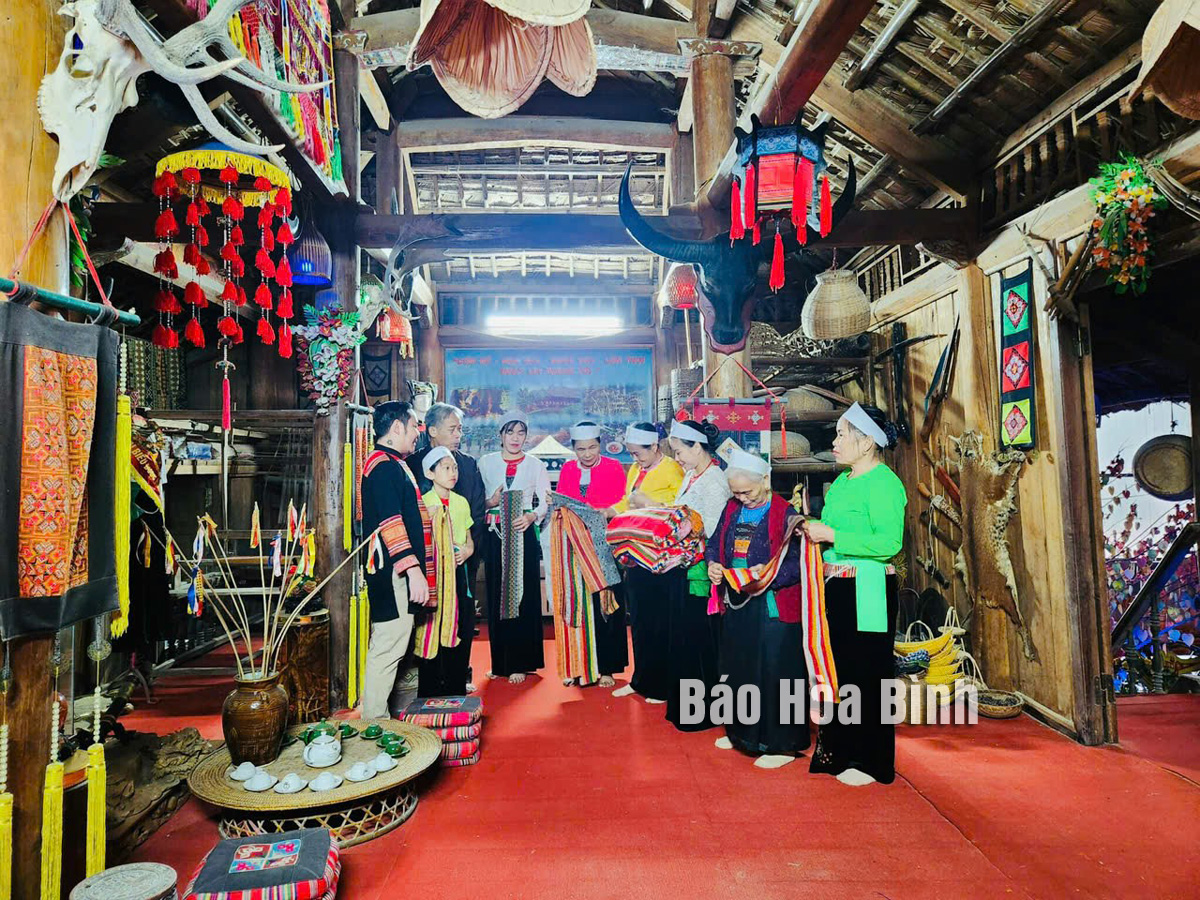With its advantages in geography, natural landscapes, and convenient transportation, Lac Thuy district in the northern province of Hoa Binh has huge potential to develop tourism, especially culture and spiritual tourism, eco-tourism, and festival tourism.

The Muong culture heritage conservation club in Ba Hang Doi town has collected and displayed over 2,000 items, including objects used in the daily life of the Muong people.
Since the Law on Cultural Heritage was enacted, the district has worked hard to prohibit actions that infringe upon cultural heritage, distort, damage, or pose risks to cultural heritage, illegally excavate archaeological sites, construct illegally, or encroach upon land within historical-cultural relics and scenic spots.
Lac Thuy homes six national relic sites, 12 provincial-level relics, and 67 others that in the list requiring protection. In recent years, the locality has paid attention to communication activities to raise public awareness of the importance of cultural heritage conservation and promotion. The district People’s Committee has focused on developing and scaling up models to conserve and promote the cultural heritage values of local ethnic groups. The district maintains five clubs for conserving and promoting the cultural values of the Muong ethnic group in Ba Hang Doi town and the communes of An Binh, Phu Nghia, Hung Thi, and Thong Nhat. Additionally, there are 20 Muong gong teams, eight poetry clubs, and 112 cultural performance teams in villages and residential areas within the district.
Efforts to encourage the involvement of society in conserving and promoting the values of cultural heritage have yielded positive results. Through donation drives for artifacts for exhibition, the family of patriotic bourgeois Do Dinh Thien donated a total of 62 artifacts preserved and displayed at the Money Printing Factory relic site.
Nguyen Thi Thanh Tam, Director of the Culture and Information Department of Lac Thuy district, said that the locality identifies the conservation and promotion of cultural heritage values as an important and regular task.
In the coming time, the district will continue to enhance the effectiveness of state management in the work in accordance with the decentralised management hierarchy, concentrating on outlining specific programmes and projects.